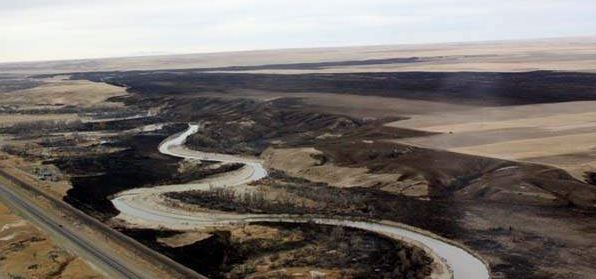 Power company and contractors agree to pay nearly $30M for fires
Power company and contractors agree to pay nearly $30M for fires
Federal prosecutors in California have reached agreements with a power company and two tree-trimming contractors over two fires in 2004. One burned 7,700 acres in the Eldorado National Forest and the other burned 3,300 acres in the Six Rivers and Shasta-Trinity National Forests. Federal officials said the fires were caused by power lines brought down by falling trees.
Western Environmental Consultants Inc. will pay $11.4 million to cover damage from the fire in the Six Rivers and Shasta-Trinity National Forests. Davey Tree Surgery Co. will pay $12 million for its role in the in the Eldorado National Forest fire. Pacific Gas and Electric Company has agreed to pay $6.1 million.
These are not the largest settlements in California for starting fires. In 2008 the Union Pacific Railroad Company agreed to pay $102 million for starting a fire north of Sacramento in 2000 that burned 52,000 acres of the Lassen and Plumas national forests. Sparks from welders repairing tracks caused the Storrie Fire on August 17, 2000, in Plumas County.
The U. S. Department of Justice and the state of California’s CalFire have been very successful with their Fire Recovery Litigation Teams, assigned to investigate and prosecute individuals and companies who start wildland fires.
Wisconsin Supreme Court awards double damages for 2003 fire
Former Supreme Court Justice Jon Wilcox and 18 other plaintiffs were awarded double the $568,422 that was the result of a 2006 court decision over damages from a 2003 fire started by a negligent camper. The award was handed down by the Wisconsin Supreme Court, five members of which served on the Court with former Justice Wilcox.




